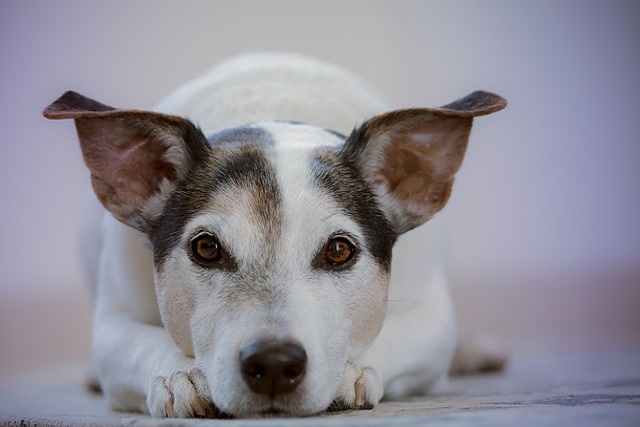
What Should You Watch Out for When Giving Your Dog Treats
Those wagging tails and hopeful eyes when you reach for the treat jar are hard to resist! Snacks can be wonderful tools for training, bonding, and enrichment.
Picture coming home to find your dog panting wildly, with diarrhea on the floor—and no clear reason for the mess. Could their separation anxiety be upsetting their stomach? Let’s explore the mind-gut connection in dogs, blending scientific research with real-life stories from pet parents.
The stress-anxiety-stomach link is real. When dogs panic, their bodies release cortisol, a stress hormone. My Border Collie, who freaks out when I leave, often has loose stools. Studies show chronic stress can inflame the gut lining, leading to digestive issues.
Anxiety triggers “fight or flight” responses. When my Lab thinks I’m abandoning her, her body redirects blood from digestion to muscles. This can cause nausea or vomiting. A friend’s Poodle throws up every time she leaves for work—it’s not food poisoning, but anxiety.
Gastric motility changes with stress. Separation anxiety can speed up or slow down digestion. My rescue mix gets constipated when anxious, while my neighbor’s Spaniel has urgent diarrhea. The gut’s “second brain” is highly sensitive to emotional states.
Chronic anxiety may lead to IBS-like symptoms. Vets have diagnosed my Aussie mix with “stress-induced colitis.” His separation anxiety causes recurring diarrhea, just like irritable bowel syndrome in humans. Diet changes helped, but managing his anxiety was key.

Vomiting vs. diarrhea: know the signs. Sudden vomiting when you leave? Likely anxiety. Persistent diarrhea? Could be a stress-induced bacterial imbalance. My Shiba Inu once had bloody diarrhea from severe anxiety—urgent vet care was needed.
Medical issues first—always. Before blaming anxiety, rule out infections or allergies. A client’s Beagle had stomach issues from a food allergy, not separation anxiety. My vet says “Never assume behavior causes physical symptoms without testing.”
Medication and behavior modification help. For severe cases, vets may prescribe antidepressants like fluoxetine. My Border Collie takes a low dose, paired with desensitization training. Now he stays calm longer, and his stomach issues have improved.
Compliance with animal welfare laws matters. In Germany, leaving dogs with untreated anxiety that causes harm is illegal. Many US states require pet owners to address medical needs promptly. Properly managing your dog’s anxiety isn’t just kind—it’s legal.
Diet adjustments can ease symptoms. Adding probiotics to my Aussie’s food helped his gut health. A vet recommended pumpkin for my Lab’s diarrhea—fiber soothes an inflamed intestine. Always consult your vet before changing diets.
Environmental tweaks reduce stress. A pheromone diffuser in my dog’s crate helps him relax. My friend leaves a TV on for her Poodle, masking outside noises. Small changes can lower anxiety levels, easing stomach strain.
Training reduces dependency. Gradual desensitization—short absences, positive associations—built my rescue’s confidence. Now she stays alone for hours without panic. Less anxiety means a happier stomach.
The human-dog bond plays a role. My anxious dogs recover faster when I stay calm during departures. Your energy affects theirs—stress begets stress. Practice calm goodbyes to break the anxiety-stomach issue cycle.
Separation anxiety and stomach problems are deeply linked. For my pups, addressing the root cause—their fear of being alone—healed their digestive issues. If your dog’s stomach troubles coincide with your absence, talk to a vet. With patience and the right approach, you can ease both their mind and their tummy.

Those wagging tails and hopeful eyes when you reach for the treat jar are hard to resist! Snacks can be wonderful tools for training, bonding, and enrichment.

Watching your beloved senior dog slow down can pull at your heartstrings. While some changes are part of normal aging,

Watching your dog turn their nose up at a meal you carefully prepared can be incredibly frustrating and worrying. Before resigning yourself to cooking gourmet feasts or panicking,

As a Schnauzer owner, the threat of parvovirus—a highly contagious, life-threatening disease—can feel overwhelming, especially given these dogs’ curious, exploratory nature.

As a Golden Retriever owner, seeing your pup shake their head nonstop or scratch at their ears can spark instant worry. Those floppy, golden ears—so prone to trapping moisture and warmth—are prime real estate for ear mites,

That low growl as you approach their bowl. The stiffened body when another pet walks by. Food guarding turns a basic need into a source of stress for everyone.